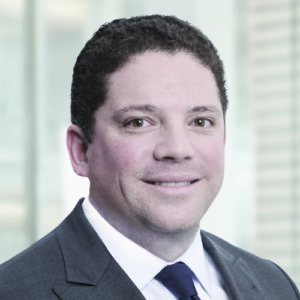
The following is an edited transcript of the podcast Two Way Traffic hosted by financial advisor Darren Coleman with his two guests: tax lawyer Trevor Parry and Kim Moody of Moodys Private Client which provides law, and cross-border tax and accounting services. Trevor Parry once told Stephen Harper that Canada has more auditors than infantry. Not to be outdone, Kim Moody says in the eyes of the Canada Revenue Agency a cocaine dealer can deduct expenses in this country, but not an Air bnb operator.
Click below for full link (interview conducted early January):
https://twowaytraffic.transistor.fm/episodes/cocaine-dealers-airbnb-operators-the-cra
Darren Coleman
I’m joined today by Kim Moody of Moodys Private Client in Calgary, Alberta, and tax lawyer Trevor Perry, who is based in Ancaster. They are two of Canada’s most prolific tax fighters. We’re going to discuss where are we right now in terms of tax policy and what should Canadian investors be thinking about. Also, we have a new government in the United States.
Why don’t we begin with a little bit of kind of where are we right now? We just had the fall economic statement that was not delivered by your Finance Minister. But they came in at more than 50% higher than the fiscal guardrail that they set for themselves. So this is an astonishing amount of capital that they’ve spent, and not even remotely close to where they said they were going to be. Even $40 billion was a big number. So now that it’s 60 and there’s really no one to stand there and take accountability for it, and we had the Finance Minister resign just hours before she delivered that statement. So I’d want to focus on where does that leave taxpayers right now because there are a number of items. I’ll focus on the capital gains inclusion rate change as probably the most significant one. Where are we now? Is that going to go through? Not going to go through? What should investors be doing? What should taxpayers be doing with the state of change that we have in Ottawa?
Kim Moody
To your question on capital gains, where are we today? This is certainly one of the most unusual times in my career where we had proposed tax legislation that looks like it’s not going to get through. Trevor and I have been around a long time, and seen lots of tax legislation not get through. If I was a betting man, I’d say probably about 98% certainty that it’s not going to go through. And I’ve written about that in my Financial Post articles. So Trevor, do you know of any other, you know, broad based piece of legislation?
Trevor Perry
There was a lot of tumult when income trusts were attacked and all that kind of stuff. But the panic that was engineered this year to create some kind of revenue event because of forced selling, and it’s going to die because they prorogued Parliament. No, I’ve never seen anything like this before, and it’s just part and parcel of the worst in the history of this country, the worst tax policy from day one going on.
Darren Coleman
 It’s really a quandary for investors and taxpayers, because the general rule has been, if I’m correct, that even though the legislation may not be enacted, one has to act as if it was going to pass, right? But as you guys have said, it’s very likely this will not pass. Should people, as they go into the tax year, be assuming that the new capital gains inclusion rate applies and act accordingly? Or should they act as if no, a betting man says it’s not going to happen, so I should just keep the old rates. What should you do?
It’s really a quandary for investors and taxpayers, because the general rule has been, if I’m correct, that even though the legislation may not be enacted, one has to act as if it was going to pass, right? But as you guys have said, it’s very likely this will not pass. Should people, as they go into the tax year, be assuming that the new capital gains inclusion rate applies and act accordingly? Or should they act as if no, a betting man says it’s not going to happen, so I should just keep the old rates. What should you do?
Kim Moody
The CRA has a long-standing policy of encouraging taxpayers to act on proposed legislation. I think there’s a good reason for that, and I support them on that because 98% if not higher of tax legislation and proposed tax legislation gets passed even with retroactive applicability, which is very common in tax law. There were some recent statements attributed to the CRA saying they’re going to continue to administer the capital gains stuff on the basis that it’s law, even if an election is called. This stuff is not going to get passed if an election is called, and therefore you’re going to continue to administer it. Well, I can tell you, in my client base, I’m giving the exact opposite advice because I think there is a 98% chance this thing is not going through. So if you want to amend your tax returns for the two-thirds inclusion rate, go right ahead, but you’re going to do it without my blessing because I think it’s wrong, and you’re going to fight to get that money back. It’ll take a long time. So that that’s my approach.
Darren Coleman
How easy is it to fight to get your money back? Is that pretty standard? Like, no, don’t worry, they’ll refund it within five business days, or is it a big argument?
Kim Moody
No, it’s not usually a fight, per se, although there’s always exceptions to that, but it’s a matter of timing. You know when you amend your tax return? Number one, Have you filed your tax return? If so, then do you have the ability to amend it? Which, in most cases, you do, and then how long is it going to take for them to process it? Those are usually the pillars, and it’s that last one that takes a long time,
Trevor Perry
It’s part and parcel of a tax administration system that needs a complete overhaul. Given that they know everything you’re doing already we need some basic respect for the taxpayer, which is something we don’t have. I remember telling our last Prime Minister that there were more auditors in Canada than Canada has infantry. That’s the nature of the beast right now.
Kim Moody
And that’s increased by a lot. I think 29,000 CRA employees. So I think it’s almost 60,000 if I’m not mistaken.
Trevor Perry
And we have about 12,000 infantry, of which we cannot deploy them all at the same time.
Darren Coleman
Let’s go back over that greatest hits of outstanding tax policy that we’ve seen over the last year. Kim, you actually wrote about that in the Financial Post recently (late January). We’ve had the flipping tax. We’ve had the changes to AMT. We’ve had the unused, underused housing tax. We just had the move the date of which you can make a charitable contribution, because we had the postal strike.
Kim Moody

Trevor knows I’m certainly no fan of the capital gains one, which I had ranked number one in the article as the worst policy. But number two is the prohibition of deductions on certain short-term rental owners. So if you happen to be an evil owner and operator of an Airbnb that operates in a jurisdiction that prohibits that, you’re denied all your expense deductions. A complete prohibition of deductions. So let’s pretend Trevor is a cocaine dealer. He’s out selling snow, but I’m just a lowly Airbnb operator. So Trevor makes 10 grand selling snow. But he’s got a bunch of people running around for him. He’s got burner cell phones. He’s got cost of his inventory, etc. So he makes net 2000 bucks, and he comes to me and says, Hey, Kim, I know I’m doing something illegal here. I’m selling drugs, but I don’t want to be a criminal twice. I want to make sure I file my tax returns because I don’t want to be a tax evader. So can you file my tax returns for me? So we go ahead and I file the tax returns. Do you think I’m claiming his deductions? His $8,000 of deductions? Sure, yeah. And there’s nothing in the Income Tax Act that prohibits that. But now I file the tax returns from my evil Airbnb operation that I’m operating illegally in a jurisdiction because I need to pay some bills, and I have the same $8,000 of expenses. Nope, I can’t deduct those, so I’m paying tax on $10,000. Now from a public-policy perspective, what does that say to the average Canadian? It tells me that the drug dealer in this fictional world, Trevor, is better off and should be treated better from a tax perspective, than me, the lowly Airbnb. That’s ridiculous policy. It’s dangerous policy, and it’s something that needs to go immediately.
Trevor Perry
For me as a lawyer and as a political junkie, I think our 1982 constitutional exercise needs to be reopened. Until we enshrine property rights in the Constitution, I believe, as a fundamental conservative that we do have property rights. Tax policy is horrible. But in terms of tax practice, having done lots of work for professional athletes, CRA running at baseball players and …
Darren Coleman
… The John Tavares situation.
Trevor Perry
If Tavares loses that you’re going to start seeing Canadian teams fold up and move again. It’s just absolutely stupid. And again, it goes to the whole issue of, why are we taxing people into oblivion at $245,000?
Darren Coleman

We did a podcast episode with Kevin Nightingale and Shlomi Levy talking about that. They don’t represent Mr. Tavares, so it was safe for them to comment. Listeners can go back and hear that podcast. We’ve also had some Toronto Blue Jays baseball players who had similar predicaments. They look like they’ve been resolved positively for the players. But those are not exactly the same situation as Mr. Tavares, so we’ll have to see what unfolds here. And as a big sports fan yourself, I know that one’s pretty close to your heart.
Darren Coleman
So now that we got into hockey, let me lure back our American listeners for a minute. Let’s pivot into what’s happening with our American cousins. They are going to go into a very interesting 2025. They have a new president. So the difference, I think, is going to be very significant between how the U.S. is going to adopt tax policy, and it’s a little concerning, I think, for many people that Canada doesn’t, apparently seem to have a functioning government at the moment. So what do you guys think Mr. Trump might do in his first year in terms of tax policy? What should investors be getting ready for?
Trevor Perry
I think you’re going to see them make the tax changes he brought in in his first term permanent. I think you’re going to get that lower corporate tax rate, which is going to cause great tumult in this country and in other countries, but particularly Canada. I think there’s going to be pressure here to have some kind of sensible corporate tax rate, the estate tax change. There won’t be any changes to estate taxation in the US for the foreseeable future. So there will be again, more reasons for, as Ross Perot called it, that great sucking sound of Canadian capital, both real and human, to leave the country.
Darren Coleman
But are they actually doing it? So gentlemen, have you actually seen evidence in your own practices of Canadians saying, I’m done, I’m out of here, and they’re actually making the steps they’re making, the move to leave, to lower tax jurisdiction. How many people are really doing it?
Kim Moody
Yeah, 1,000% and I’ve written about this a lot. I’ve spoken about it publicly. I’ve spoken at conferences about this. At one particular conference I spoke about this and there was an academic who was pro capital gains changes. So I showed the statistics but his rebuttal was, I don’t believe you. Here’s the statistics coming out of my office in Calgary. And we’re not a big office, but we’re about 85 people. We act for high net worth, ultra high net worth, private companies and individuals. In the first 23 years of my career — I’ve been practicing for roughly 31 years now — in the first roughly 23 years of my career, I did maybe a dozen departure tax files. It was really easy to leave Canada without incurring departure tax. That all changed. I want to say late 90s, am I right? Trevor, something like that, and and they made it a lot more difficult. And so in the last nine years, this increased with a new high personal tax rate. And then fast forward to the attack on small businesses in 2017 that caused a whole bunch of angst. COVID caused a whole bunch of out-of-control spending. And then the capital gains stuff was just kind of over the top. So all to say, in the last, especially five years, the number of files that I’ve worked on in the, you know, departure tax. You want to take a guess, Darren?
Darren Coleman
You’re over 100.
Kim Moody
Well, it’s over 600 now. To be fair, not all of those 600 have actually closed the deal. I would say probably a little over half have closed the deal. The others are just waiting in the wings. Now, you want to know the wealth, which I haven’t tracked it accurately, but the wealth attached to those 300 files.
Darren Coleman
Let’s just say it’s high billions. Yeah, that’s gone. And it’s not going to come back because once people have departed, they paid the exit tax. They’re not coming back.
Trevor Perry

We did our annual drive through the Midwest, because my wife’s family is from Wisconsin and Minnesota. And in addition to seeing probably 7000 Trump signs and two Harris signs, I can attest to you that the American standard of living is demonstrably superior than the Canadian at the middle class and lower middle class level. It is tangible. It is real. All you need to do is go and see it. My family’s been in Canada for 400 years. My French is brutal, but we’ve been here for a long time. So it pulls up my heart strings, but I am very much considering it. I’m probably going to write the Florida Bar some point this year. Whether I go or not, I don’t know. But the Canadian electorate, the citizenry, has to wake up.
Darren Coleman
People get the government they deserve.
Trevor Perry
Exactly. So there’s a ton of work to do it, and this cradle-to-grave government has got to end. But the dichotomy, the paradox between Canada and the United States right now has never been more stark in my opinion.
Kim Moody
Any guesses where all that wealth is going?
Darren Coleman
Texas and Florida. The two primary recipients.
Kim Moody
I would say without a doubt, 95% go to the United States.
Trevor Perry
I remember in my second-year undergraduate in Convocation Hall, it was an introduction to international relations, and Professor Janice Stein asked us: What is Canada and what are Canadians? I said – and this was the 80s – that Canadians are an apathetic lot who believe that the country is the sum total of its social programs.
Darren Coleman
Diane Francis wrote an interesting piece that talked about Canada becoming the 51st state. And obviously she balked at that, because politically, it just wouldn’t happen. And the wealth of Canada is too gigantic to just say we’re absorbed as a state. But she posited this idea of a more positive economic union between Canada and the U.S. to allow a greater free flow of capital, employment and everything else, just like the EU. You can live in Germany, work in France, and everything else. Now that would be devastating to my business and Kim’s and Trevor’s, to some extent, because we help people with moving capital and people across the border. But would that be something that you guys see as a potential reality in the next few years? A greater degree of union between Canada and the U.S.
Kim Moody
I think that would be better. I mean, when you have what are we now the third largest trading partner in the U.S.? I mean, for years, we were proudly number one, but I think we’re now number 3. Like Trevor, I have roots in Canada going back probably not 400 years, but a lot of years. And I’m a proud Canadian. I would never support being the 51st state. But in terms of an economic union, tighter ties, you know, kind of a seamless border. Yes, as long as we can deal with some of the soft spots and some of the soft spots are things Trump seems to have a a real hate-on for. I think the Fentanyl crisis is not even close to the top of his list. I think it’s anything to do with money, which is, where’s the disproportionate trade going on with the United States and Canada, and how can they improve that? I think if we can deal with those soft spots and at the same time deal with some of the stuff that is more humanitarian in nature, like the fentanyl stuff, then great. I’d be all for that.
Trevor Perry
I’m all for as much economic integration, both interprovincially and with the Americans, as possible. Our future is tied to the United States. No question. I’m not a big fan of selling our natural resources to the People’s Republic of China. We can do business with them, as long as they will adhere to contract and the rule of law, and we can do great business with them. But our future has always been tied to the United States.
Darren Coleman
Food for thought for 2025. So gentlemen, I’m going to wrap it up there. We’ve been about half an hour together. I want to thank you for your time, and thank the listeners for joining in. I think there might be a few other topics that maybe we pick this up in the new year as we get a little more clarity on the political situation in Canada and as the US brings their new president into power.

